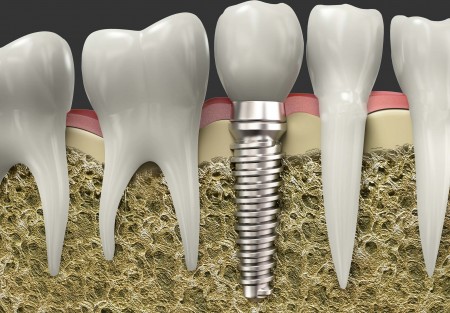How Do I Know if I am a Candidate for Dental Implants?
Generally, anyone healthy enough to undergo treatments for routine tooth extractions or fixed bridgework is a candidate for dental implants. There are some health conditions where this procedure is contraindicated—medical speak for inappropriate—and your dentist, periodontist or oral surgeon can discuss this more in depth with you.
You will receive a thorough examination and the best form of implant will be determined at that point. The biggest indicators of whether you are a suitable candidate and what sort of procedure is best is the amount and location of available bone.
Whenever it comes to our health, it would behoove you to learn as much about your condition and various treatments as you can. This will help you make better decisions, and allow you to formulate questions.
The internet is a great resource here. For example, you can see some interesting and informative videos about these sorts of procedures on the website of Montana-based periodontist Dr. Manhart who performs cosmetic periodontal surgery.

Is There a Risk My Body Will Reject the Implant?
The idea of the body rejecting something that has been implanted into it may raise concerns your body would reject dental implants. But, no worries because these are a totally different kind of implant. This is not something like giving someone a brand new vital organ, where issues of blood and tissue type, come into play.
The body can easily accept the materials of which dental implants are made. The key to success is following your doctor’s instructions about proper preventative maintenance and hygiene, as well as regular follow-up care.
How Long Do Implants Last?
Implants, like teeth, are built to last forever. But, like teeth, if you don’t take proper care of your implants, you may encounter a variety of problems. A skilled practitioner who gives you the proper care is an important factor as well, but that is not the only one and the onus is on you to embrace good nutrition, oral hygiene and other elements that will keep your implants in tip top shape. There really are no guarantees but if you do everything you are supposed to, you can tip the balance in your favor.
Do Implants Need Special Care?
In a nutshell, treat implants as you would regular teeth. You need to brush and floss regularly and take good care of your gums. If your practitioner gives you any other specific instructions, make sure you follow them, but overall, you would care for implants as you would natural teeth.
Does the Procedure Hurt and How Long Does it Take?
Generally speaking, the procedure is not super painful, and taking an OTC pain reliever for two to five days usually does the trick. If you have many implants, or require additional procedures such as bone grafting, the healing time and medications required may be different.
The procedure may take anywhere from 30 minutes to four hours depending on the number of implants and the complexity of your case.
It can take three to six months for the implant to bond to the jawbone. The first couple of weeks you will need to eat a soft diet.
After this time, the second phase takes place where the implant is uncovered from under the gum and a post is attached. About two to six weeks later, the new replacement teeth are created and fitted, and can take about 4 to 8 weeks.

